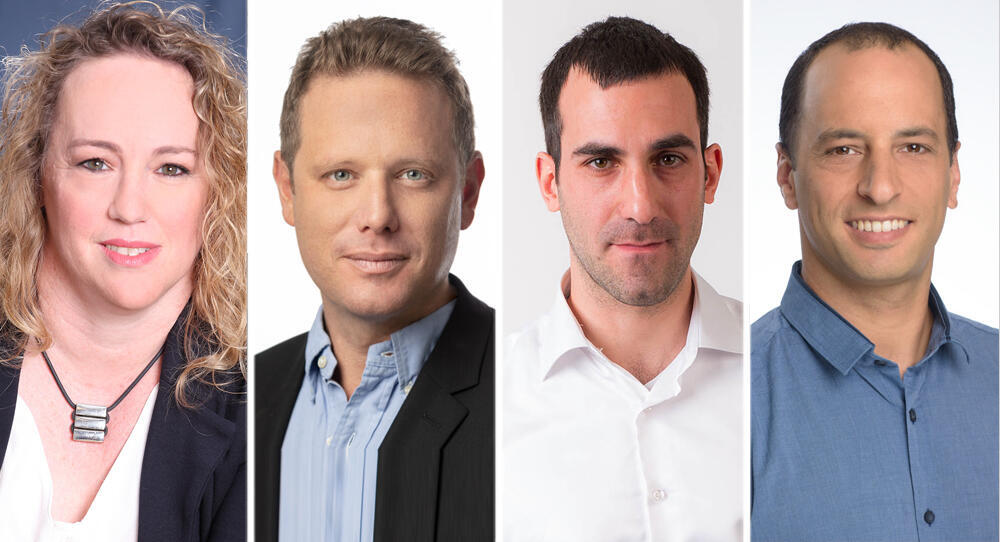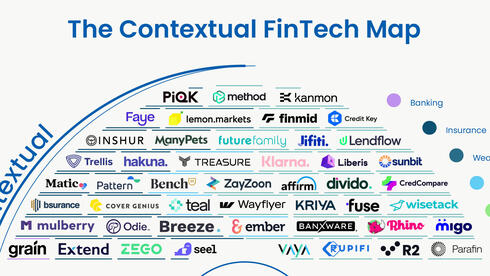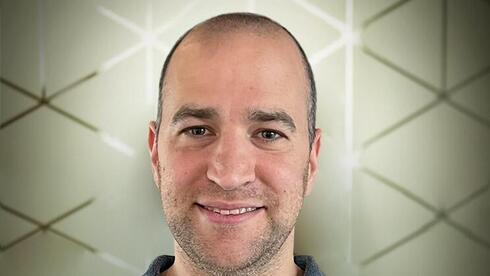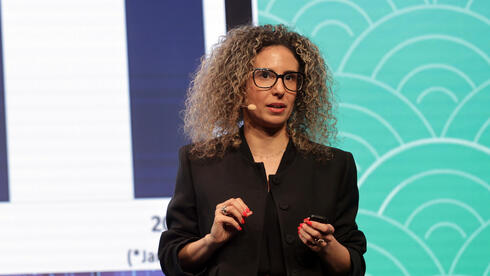
How healthy due diligence can save investors from the next Joonko or Vesttoo
How healthy due diligence can save investors from the next Joonko or Vesttoo
As more companies get exposed as fraudulent, CTech hears from experts in the field about how to spot potentially troubling companies
Recent months have shown that Israel’s Startup nation is not immune to drama. With companies like Joonko and Vesttoo on the verge of collapse after it was revealed they had botched their figures or were involved in alleged fraud, everyone is asking: Am I safe from the next fraudulent company?
CTech heard from Tiran Rothman, Ph.D., VP at Frost & Sullivan, Adv. Oren Sharon, Head of the Hi-tech department at S. Friedman Abramson & Co. law offices, Gilad Tauber, Patent Attorney and Partner at Reinhold Cohn Group, and Adi Nov, CEO at ICIC (Israel Credit Insurance Company). Together they share how proper due diligence can help identify some of the problems that escaped previous investors or lawyers.
1 View gallery


(L to R) Adi Nov, Tiran Rothman, Oren Sharon, Gilad Tauber,
((Photo: David Garb/Eyal Toueg/Maya Karmi Dror/Eric Sultan))
With Israeli companies like Jookno and Vesttoo caught in fraud schemes, how did they get away with them as long as they did?
“When the tide is high, it is hard to see who is without pants, as Warren Buffett said,” explained Tiran Rothman, VP at Frost & Sullivan. “During the big fundraising days of 2020 and 2021, investments took place due to low interest rates, and everyone was looking to invest, even at the price of relatively high risk. The haste produced many mistakes and cornering of many investors, including relatively small funds that entered the field, and caused even the significant investment funds to skimp on proper inspections. A well-known example is SoftBank and WeWork.”
Adi Nov is the CEO of ICIC (Israel Credit Insurance Company). She added: “When money is available and interest is low, it is easy to raise money with very little more than a good idea, even if you already have a significant operation, the cracks become visible when the environment becomes more difficult.”
“Although these corporate tragedies are still fresh, and in my opinion, not all relevant information regarding such frauds has been disclosed to the public, it is still safe to say that should the companies' boards of directors have held these companies on a tighter leash, asked for periodic reports with sufficient evidence to back such reports and take advantage of their inspection rights, as are commonly granted to investors, I presume that these frauds would have been prevented or at least would not have reached the size that was reported,” said Oren Sharon, Head of Hi-tech Department at S. Friedman Abramson & Co. law offices.
Are there any specific industries or sectors within Israel that have been particularly susceptible to fraud, or where due diligence has been lacking?
Rothman believes that analysts had the challenge of understanding how long the revenues would continue based on either fixed-income components or SaaS models. “It is important to remember that in a declining economic cycle, such as the one we are in, companies that purchase products and software slow down, and therefore, even well-known companies, such as startup companies, are less well-known. The big problem in terms of the value of the companies in recruitment was that they needed to examine the profitability of the customer acquisition. In my opinion, SaaS companies are the most likely to be involved in fraud since the agreements may turn out to be short or inflated, which greatly impacts the value of the company in the fundraising round,” he said.
Nov admits the risks are higher in companies where there is a lot of cash, “especially where the checks and balances are not yet as strong as they are in long existing companies… In the Israeli economy, as the tech industry is about 15% of the activity it is the first sector to be considered, although we have seen companies in other sectors (like energy) suspected of fraud in the last few months.”
“Frauds are a result of intentional actions led by people. As such, there is no specific industry where such frauds are more probable to take place - as it is the same as saying that people working in a certain industry are more likely to engage in fraudulent activity than people working in other industries,” explained Sharon. “Nevertheless, I suppose that by carrying out a thorough research one could infer the statistics applicable to the number of reported frauds per industry. It is my assumption and without undergoing any comprehensive research on this subject that such statistics will show that companies in the financial and insurance sectors are engaged in reported frauds more (in absolute figures) than in other sectors.”
What do investors typically 'miss' when they conduct due diligence?
For Gilad Tauber, Partner at Reinhold Cohn Group and Patent Attorney, due diligence aims to review the existing and potential business and legal status of the company, and one aspect he believes is often overlooked relates to Intellectual Property. “This includes several fields, such as patents (or active patent applications) held by the company, design patents, trademarks, and the risk of infringement upon third parties' intellectual property. An additional important issue relates to the preservation of trade secrets,” he said.
Tauber continued: “The mere existence of intellectual property assets may provide only limited information, and a proper study should be sought to identify connections between such assets and the business activity of the company.” Finally, the safekeeping of trade secrets and how they are managed can limit exposure to fraud. “Identifying the trade secrets and steps taken to maintain the secrecy of these secrets may also limit exposure to fraud, such as in the case of Joonko and Vesttoo. Without getting into the details of these cases, business information such as client list, list of providers, and risk calculation algorithms fall under Trade Secrets and must be adequately protected.”
“It would help if you went down to the field,” added Rothman. “Research the customers and hear the company's competitors, who have the best insights and directions. Every company will say that it addresses the largest market with the most advanced product. However, a deep dive into financial reports and technology due diligence is needed.”
Nov tells readers not to get caught by the ‘story’, and that due diligence should be performed and all regulatory and audit aspects considered, not only the possible success stories. “We believe that most tech activity in Israel is not fraudulent. The best way to identify the exceptional negative cases is by relying on a strong process and making sure the tech partner is reviewed according to a reliable methodology with vast good experience,” she said.
Sharon agrees that the story of the founders, as well as their personalities and backgrounds, should be examined in the due diligence process. “As part of the due diligence, the investors rely on their advisors (legal, financial, tech, and business) and the report they manufacture following their respective examinations and conclusions… Throughout this entire process, the founders' personality and background is commonly (and wrongfully) overlooked. In most cases the due diligence is carried out in a technical manner where the focus is on areas where there could be increased risk for the investor, however, what differentiates one company from the other is in many cases the profile of the founding team leading it.”
What measures can Israeli companies take to prevent and detect fraud within their organizations?
Sharon adds that frequent audits of the companies' departments, including by external auditors and advisors, would help prevent these issues in the future. “With early-stage companies, when the budget is naturally tight, and most likely will not be allocated to finance external audits, it is recommended that each department head will provide reports backed by sufficient evidence to the CEO, and the CEO in turn will provide a consolidated report addressing all relevant aspects of the company to the board of directors,” he explained. “The more frequent such reports are the less chance of fraudulent activity remaining undetected - which will in turn increase the company's reliability in the eyes of its investors.”
He also suggested frequent board meetings, especially when important business decisions are on the agenda, and frequent inspections of the company's activity by its board members should decrease the probability of fraudulent activity.
What best practices can businesses or VCs follow when conducting due diligence on potential companies to minimize fraud risks?
“Companies must be examined not only based on the materials that the company transmits but also an actual investigation of some customers at random, an in-depth conversation with the market, with direct and indirect competitors of the company,” said Rothman in his final remarks. “In addition, a discussion with customers who did not purchase the company's product but were potential customers. Another aspect of it, in the regulatory element, is to oblige a company that has raised a significant amount to appoint a custodian for the money, like the model of mutual funds.”
Tauber concludes by recommending identifying the relationship between the IP assets, the business plan of the company, its product, market, competition, and planned future R&D. “This review includes the subject matter of patents and scope of protection, proper assignment and signatures from the inventors, and identifying possible future IP,” he said. Second, review the list of documents access permission, materials classified as trade secrets, and the periodic update of these permissions. “Maintenance of trade secrets and access permissions is important to avoid leaking of technical information and may limit exposure to fraud by restricting access to company data, its clients, service providers, and other information that may be used for fraud and/or business competition,” he warned.
“Perform extensive due diligence of legal, financial, technological, and business,” Sharon concluded. “Learn the profile of the founding team and request for sufficient evidence to back up the statements made by the company with respect to its business and financial status… Remember that due diligence is the process of determining whether the company is worth an investment, but when the objective is to prevent fraud, it is only the first step and continuous audit and inspection will be required,” he added.













